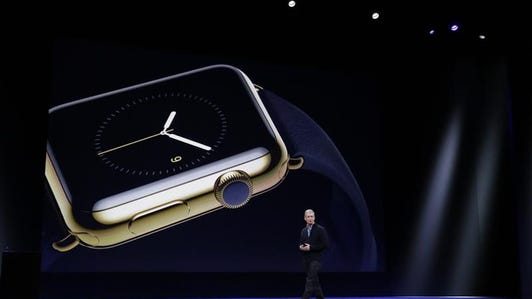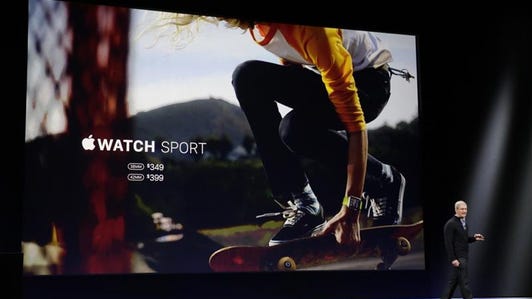
John Sculley
Thirty-one years after he helped oversee the iconic 1984 Macintosh ad, former Apple CEO John Sculley said there’s still no one who can match Apple when it comes to marketing — no matter how much money rivals pour into their campaigns.
Sculley was referring to Samsung, who took the smartphone crown thanks in part to its savvy “Next Big Thing” marketing campaign, which cemented its status as a credible competitor to Apple. But while Samsung may have a near-ubiquitous presence, it still can’t beat Apple’s ads when it comes to making consumers feel they have to have a product, said Scully, who’s best known as the man who forced Steve Jobs out of Apple.
“Everybody talks about Apple. Nobody talks about Samsung, or Microsoft, for that matter,” Sculley said. “It’s hard to be one of these experience brands. Apple was superb about it…To play Apple’s game as a direct competitor, which is what Samsung has been doing, is really, really hard.”
While Sculley may be biased, his comments speak to the importance of a strong marketing campaign in the hypercompetitive battle for smartphone customers. Though marketing and a steady improvement in device quality helped Samsung reach the top the mountain, the company has recently lost market share and seen its profits dwindle as it gets squeezed by its rivals.
Samsung spent about 15 percent more on marketing its mobile devices in the US than Apple in the first nine months of 2014, according to the most recent data available from market tracker Kantar Media. But Apple still has managed to grow its market share and outsell Samsung in recent months, while Samsung has struggled to top its previous performance with recent flagship products such as the Galaxy S5 and Galaxy Note 4.
Sculley noted that Samsung’s industrial design is “perfectly decent,” but it hasn’t managed to make consumers covet its devices and feel the way they do about their iPhones.
Samsung declined to comment.


Though Sculley has an infamous reputation, he was also known as a marketing genius who served as president of Pepsi-Cola. Since he himself was forced out of Apple in 1993, Sculley, 75, has advised and invested in companies, including low-cost handset vendor Obi Mobiles. Sculley even recently published a book, “Moonshot!,” to coach companies on how to avoid the fate of companies like BlackBerry.
“The more successful you are, the more at risk you become of being a victim of that success,” Sculley said. “One obvious example is Intel and Microsoft. In the 1990s they dominated personal computers…but both missed mobility.”
That remark was part of a broader conversation Sculley had with CNET. Here are some other thoughts from the former Apple CEO:
The world of ‘fashion electronics’
Part of Samsung’s problem, Sculley says, is that it’s still not thinking of the consumer when it’s building products, but instead it includes technology features just because it can. Apple is more thoughtful when creating products, he said, and that’s particularly obvious when it comes to wearables.
“We’re in the world now of fashion electronics,” Sculley said. “It’s much less about the technology, it’s about the fashion appeal of the products. I have no idea if Apple Watch is going to be successful or not, but certainly Apple has gone for the high ground with fashion. If a space is there for someone to build a fashion electronics brand for something you wear on the wrist, Apple’s got the best shot at it.”
Apple Watch keeps up with the times (pictures)






+40 more
For Apple, this world represent new ground. Sculley noted that Apple has brought in talented people from the fashion industry. But the question remains about how the company will sell the product.
“This is where it gets them a little bit into new territory,” he said. “I can’t tell if it’s smart or not.”
Still, while Sculley owns multiple Macs, iPhones and iPads (including lining up to buy the iPhone 6 Plus while in Dubai), he’s not going to be buying the first Apple Watch.
“For me it’s, ‘What do I do with it?'”
Tim Cook is the right guy for the job
Apple CEO Tim Cook might have a few ideas for Sculley on what to do with Apple Watch, and so far in his tenure as CEO, he’s doing all the right things, Sculley said.
“He’s done a lot of really smart things and deserves a lot of credit,” Sculley said. “He didn’t try to pretend he’s going to be the next Steve Jobs, and he didn’t try to superimpose his personality onto the products. He has taken Steve’s brilliance and Steve’s intuitive design and said we can continue to build on the foundations Steve left as his legacy.”


Now playing:
Watch this:
For Tim Cook, protecting consumers’ online privacy is…
2:44
Sculley also praised Jony Ive, Apple’s head of design, who’s been given a lot of control by Cook. And Cook has “brought in people with great domain experience and things Apple didn’t have before,” such as Jimmy Iovine and Dr. Dre from Beats. The two joined Apple last year as part of Apple’s $3 billion acquisition of the headset and streaming-music business.
“Apple clearly didn’t buy Beats for its technology. It can figure out how to stream on its own,” Sculley said. “Cook understood that the relationships Jimmy Iovine and Dr. Dre had in the industry were more valuable than their technology.”
Using Apple’s $178 billion cash pile
Beats was a smart acquisition by Apple, Sculley said. And while it was the largest purchase in Apple’s 38-year history, it barely made a dent in Apple’s cash pile, which totaled $178 billion at the end of 2014.
“Apple has never had an appetite to buy big companies, especially when I was there,” Sculley said. “The board had no interest in considering acquisitions, and there was nothing we missed.”
At one point, Apple owned about 18 percent of Adobe and about 5 percent of AOL, Sculley said, and it even helped AOL make payroll. But Apple didn’t consider buying them outright, he said. If Apple wanted to make another big acquisition today, PayPal could be a good option, Sculley said.
See also
- John Sculley spills the beans on firing Steve Jobs
- Former Apple CEO John Sculley recalls the Macintosh launch
- Apple rings up big holiday sales thanks to larger-screen iPhone 6
“It would certainly be a game changer for the industry, but maybe they don’t need it and feel Apple Pay will be successful on its own,” he said. “My sense is they don’t need to go out and buy another technology company. They need to look at other fields. Why didn’t Apple buy Nest Labs instead of Google?”
It’s a far cry from about 20 years ago, when Apple could have been on the selling block itself. At that time, no one was interested in buying Apple, he said. With a market value of more than $740 billion as of Friday, now no one could afford to.



